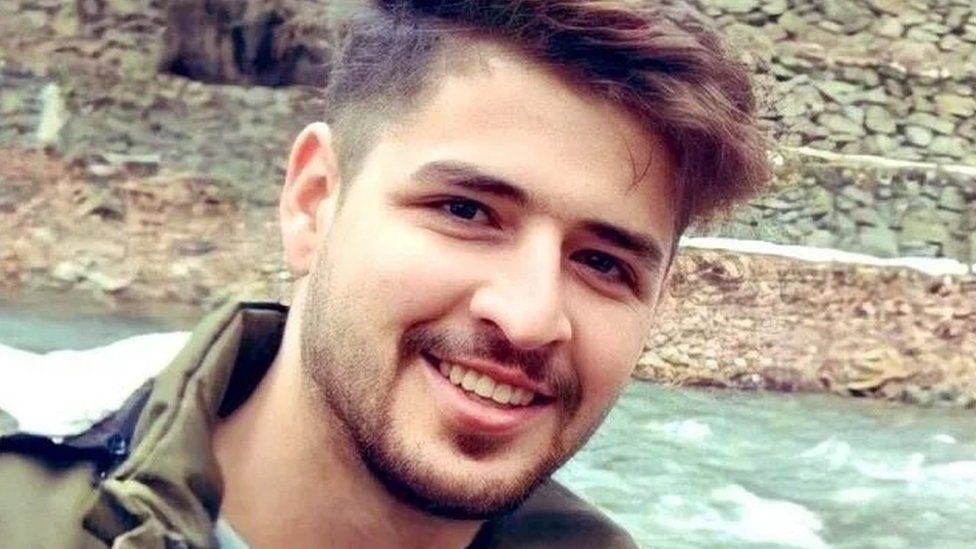-

-
-
Loading

Loading

The judiciary in Iran has confirmed the execution of Mohammad Ghobadlou, a man who was sentenced to death for his involvement in mass protests against the clerical establishment. Ghobadlou, 23, was convicted of murder and "corruption on Earth" for allegedly running over a policeman with his car and killing him during a protest near Tehran in September 2022. However, rights groups have criticized his trial, alleging unfairness and torture. Appeals to consider his mental health condition were also rejected. Ghobadlou's execution marks the ninth person to be executed in relation to the protests, while others remain on death row or are at risk of receiving the death penalty. The protests were sparked by the death of Mahsa Amini, a 22-year-old woman who was detained for allegedly "improperly" wearing her hijab. Security forces have responded with a violent crackdown, resulting in numerous deaths and detentions. Ghobadlou's execution took place on Tuesday morning, and videos on social media captured his family's distress at the prison gates. Prior to the execution, Ghobadlou's mother had made an emotional appeal to the family of the slain policeman, asking them to spare her son from retribution. She had also highlighted her son's bipolar disorder and the fact that he had stopped taking his medication before the protests, diminishing his responsibility. Ghobadlou's lawyer argued that the execution would be illegal and equated to "murder", as he claimed the Supreme Court had previously invalidated the death sentence due to his client's mental health condition. However, the judiciary dismissed this claim and revealed that the Supreme Court had twice rejected such appeals. Amnesty International had previously highlighted the unfairness of Ghobadlou's trials, stating that they were tainted by torture-induced confessions and a failure to conduct proper mental health assessments. The organization also reported that Ghobadlou was denied access to a lawyer, subjected to beatings, and denied his bipolar medication to force a confession. Critics, such as the director of Iran Human Rights, have denounced Ghobadlou's execution as an extrajudicial killing and called for accountability from Iranian authorities. Imprisoned human rights activist Narges Mohammadi urged Iranians to show solidarity with Ghobadlou's family in the face of his execution, emphasizing that silence would be seen as betrayal.